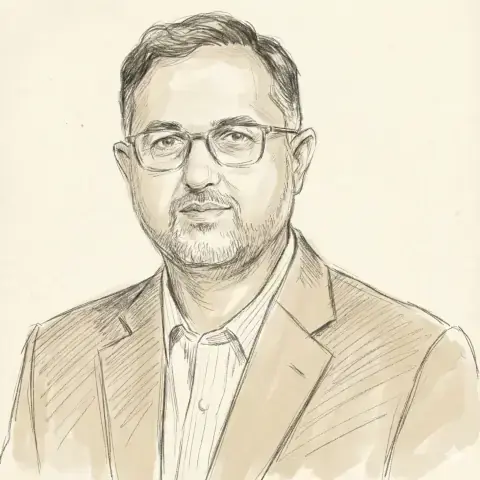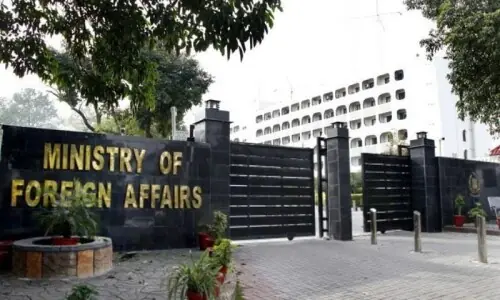ISLAMABAD: The Senate Standing Committee on Foreign Affairs was told on Thursday that dossiers given to the United States and United Nations Secretary General on India’s alleged involvement in terrorism in Pakistan did not contain ‘material evidence’.
Testifying before the Senate Foreign Affairs Committee, which met with Senator Nuzhat Sadiq in the chair, Adviser on Foreign Affairs Sartaj Aziz said the dossiers instead contained the “pattern and narrative” of Indian involvement.
“The dossiers have been meticulously prepared, but material evidence cannot be shared for the sake of protecting the sources,” he said, adding that the proofs could have only been provided to others in the narrative shape.
Also read: Dossiers of Indian hand in terrorism handed over to UN chief: Aziz
Mr Aziz had first talked about the three dossiers ahead of Pak-India National Security Advisers meeting, which was later cancelled. His statement led to a media hype that the government after decades of complaining about Indian role in terrorism in the country was finally readying to present credible evidence to the world.
Sartaj tells Senate committee dossiers given to US, UN contain ‘pattern and narrative’
Following the cancellation of the bilateral NSA talks, the dossiers were given to UN Secretary General Ban Ki-moon by Pakistan’s Permanent Representative in the UN, Dr Maleeha Lodhi. The same were also shared by Mr Aziz with US Secretary of State John Kerry during Prime Minister Nawaz Sharif’s visit to Washington last month.
The dossiers, according to previous official statements, contained proofs about Indian involvement in Balochistan, Federally Administered Tribal Areas (Fata) and Karachi
While talking to media after the US visit, Mr Aziz had said that the dossiers would help build a narrative about India’s patronage of subversive activities in Pakistan.
Foreign Secretary Aizaz Ahmed Chaudhry told the committee that the contents of the dossiers could be shared with the members of the panel in an ‘in-camera’ session due to `the sensitivity of the matter’.
CPEC: Mr Chaudhry struggled to explain the omission of China-Pakistan Economic Corridor (CPEC) from the joint statement issued after the meeting of Prime Minister Nawaz Sharif with President Obama in Washington on Oct 22.
Senator Mushahid Hussain Sayed had pointed out that while the joint statement welcomed regional connectivity projects and named Afghanistan-Pakistan Transit Trade Agreement, the Central Asia South Asia Electricity Transmission and Trade Project (CASA-1000) electricity corridor, the Turkmenistan-Afghanistan-Pakistan-India (TAPI) natural gas pipeline project, it curiously remained silent on CPEC.
Mr Chaudhry clarified that it was President Obama, who praised those projects and the same was noted in the joint statement.
He further said that the Pakistani side had briefed the Obama administration about CPEC and apparently they had no objection to it.
BANNED GROUPS: The foreign secretary disclosed that Falah-i-Insaniyat Foundation (FIF), a charity linked to Jamaat-ud-Dawah (JuD), was not among the organisations placed under observation.
FIF as per some of the earlier government statements was under watch.
It was not clear if the foreign secretary’s statement denoted a change in FIF’s status or he simply clarified the misperception that FIF was on the watch list.
UN listed FIF as a terrorist organisation in 2012 under UNSC Resolution 1267 and 1989.
JuD was meanwhile among the organisations whose activities were being supervised, Mr Chaudhry said.
Another related group, Lashkar-e-Taiba, he said, was a banned entity.
Published in Dawn, November 20th, 2015



































